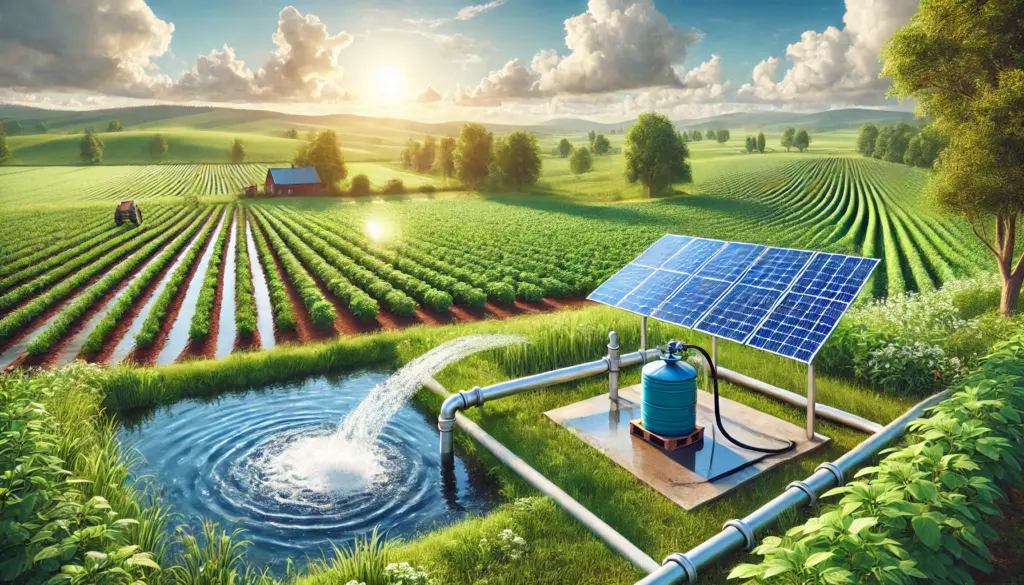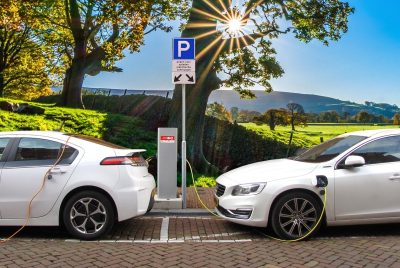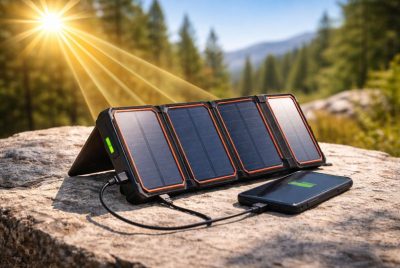Water Pump with Solar Power: A Complete Guide
Life is water, isn’t it? We require it for drinking, crop cultivation, animal care, and even basic survival. However, transporting water, whether for industrial, drinking, or agricultural purposes, has always been a little challenging, particularly when power is required. Water pump with solar power can help with that. By employing clean, renewable energy to do the task, they are revolutionizing the industry. That sounds rather awesome, doesn’t it? Let’s get started and examine how they operate and why they can be just what you require.
What is a Solar-Powered Water Pump?
Essentially, a solar-powered water pump is a pump that moves water using solar energy. No fuel, no grid electricity, only pure sunshine. These pumps are an excellent substitute for conventional pumps that need gas or power. Because they use renewable energy, they not only help you save money on your electricity bill but also benefit the environment. They are utilized in everything from distant residences to agriculture, and they are quickly becoming the preferred method of managing water resources.
How Does a Solar Water Pump Work?
Consider the sun to be your own power source. Sunlight is captured by solar panels, which then transform it into electricity, also known as energy. The pump, which transports the water from one location to another, is then powered by this electricity. It resembles a straightforward cycle: the motor is powered by solar energy, and the pump is turned by the motor. It operates as long as there is sunlight and requires neither fossil fuels nor cables to the grid. Some configurations also come with batteries, allowing you to use the pump at night or on overcast days. In all honesty, it’s a fairly intelligent mechanism that conserves energy and comes through when you need it most.
Types of Solar Water Pumps
Now, not all solar pumps are made equal, and your goals will determine which one is best for you. You may require a submersible pump if you are extracting water from a deep well. They draw water up from deeper sources when submerged. On the other hand, a surface pump is the most effective when drawing water from a shallow source, such as a pond or river. While some pumps are AC (alternating current), which means they need an inverter to switch the power, others are DC (direct current), which means they are powered directly by solar panels. Knowing what you need will help you achieve the best results, much like when you choose the appropriate tool for the job.
Benefits of Solar-Powered Water Pumps
So, why are so many people jumping on the solar water pump bandwagon? First off, they’re super eco-friendly. Unlike diesel or electric pumps, they don’t emit any harmful gases, which is a win for the environment. And let’s not forget about cost savings. Solar energy is free, so once you’ve made the initial investment, you won’t need to keep paying for fuel or electricity. Plus, they’re low-maintenance. Solar systems are pretty reliable and don’t require a ton of upkeep. In the long run, you’ll save a lot of money while also doing your part to help the planet.

Applications of Solar Water Pumps
Solar water pumps are used for all kinds of purposes, and you’d be surprised by how versatile they are. For farmers, these pumps are a lifesaver when it comes to irrigation. Instead of relying on rain or expensive grid electricity, they can ensure their crops get the water they need with zero emissions. Livestock owners are also big fans, as these pumps can provide a constant water source for animals in remote areas. On a more domestic level, people are using solar pumps for everything from supplying water to their homes to maintaining water features like fountains or ponds. The possibilities are pretty endless once you start thinking about it.
How to Install a Solar Water Pump
Installing a solar-powered water pump is simpler than it might sound, but it does require a bit of planning. The first thing you’ll need to figure out is how much water you need and where you’re going to get it from—whether that’s a well, pond, or something else. Once you’ve got that figured out, you’ll need to choose the right pump and solar panels. After that, it’s just a matter of setting up the system. The solar panels should be positioned where they’ll get the most sunlight, usually on the roof or in an open space. If you’re not sure where to start, it’s always a good idea to have a professional help out with the installation. Once it’s up and running, the system practically takes care of itself.
Challenges of Using Solar Water Pumps
While solar-powered pumps are awesome, there are a couple of challenges to keep in mind. One of the main drawbacks is that they rely on sunlight, which means their performance can dip on cloudy days or during the night. That said, many systems come with batteries to store extra energy during the day, so the pump can still run when the sun isn’t shining. Initial costs can also be a bit high, especially for larger systems. But when you think about the savings on electricity and fuel in the long run, it’s often worth the investment. And, like all systems, a little bit of maintenance is required now and then. Cleaning the solar panels and checking for wear and tear is important to keep everything running smoothly.
Cost Considerations
Let’s talk money. The upfront cost of installing a solar water pump can be a little intimidating, but here’s the thing: once it’s set up, your ongoing costs are very low. You won’t be paying monthly electricity bills or buying fuel, which can add up over time. Plus, in some places, you can get financial incentives or tax credits for using renewable energy, which can help offset the initial cost. When you factor in the long-term savings, a solar water pump is often a much more economical choice compared to traditional pumps. The key is to think about the long-term return on investment rather than the immediate cost.
Environmental Impact
Solar-powered water pumps aren’t just good for your wallet—they’re great for the planet, too. Since they run on sunlight, they produce no emissions, unlike gas or diesel pumps. This makes them a fantastic option for those looking to reduce their carbon footprint. Solar energy is also a renewable resource, which means you’re tapping into an energy source that will never run out. And let’s not forget that solar panels themselves are increasingly made from recyclable materials, so the entire process is much more sustainable. If you’re passionate about making a positive environmental impact, switching to solar water pumps is a step in the right direction.
Why Solar Pumps Are Ideal for Remote Areas
Remote areas are often the toughest places to get reliable power, right? But that’s where solar water pumps really shine. They can operate entirely off the grid, so whether you’re in the middle of nowhere or just far from an electrical grid, a solar pump will still get the job done. Farmers, ranchers, and homeowners in rural locations can enjoy access to water without worrying about power outages or expensive fuel costs. The low-maintenance nature of these pumps means fewer headaches, even when you’re far from the nearest hardware store or technician. In off-grid areas, solar water pumps are a lifesaver.
How to Choose the Right Solar Water Pump
Choosing the right solar water pump can be a bit overwhelming with all the options out there. But don’t worry, it all comes down to a few key factors. First, consider how deep your water source is. If it’s deep, you’ll need a submersible pump; if it’s shallow, a surface pump should do the trick. Then, think about how much water you need to move each day. The more water you need, the more powerful a pump you’ll need. Don’t forget about the sunlight in your area—if you live somewhere that doesn’t get much sun, you’ll need a more robust system or one with battery storage. It’s also a good idea to talk to experts who can guide you in the right direction.
Maintenance Tips for Solar Water Pumps
The good news is that solar water pumps are pretty low-maintenance. However, to keep everything running smoothly, there are a few things you should do. Regularly clean the solar panels to remove dust or debris that might block the sunlight. If your system includes a battery, make sure to check its charge levels and condition from time to time. It’s also a good idea to inspect the pump for any signs of wear or leaks. These small checks can help you avoid costly repairs down the road. With a little attention, your solar pump will last for years.
Solar Pumps for Sustainable Farming
Farming and water go hand in hand, but water is also one of the biggest costs for farmers. Solar-powered pumps are a game-changer in this regard. They allow farmers to water their crops without the steep electricity bills or reliance on inconsistent rain. These pumps are especially useful in drought-prone areas or places where water resources are scarce. They also support sustainable farming practices by reducing the environmental impact of traditional irrigation methods. With solar water pumps, farmers can grow crops more efficiently and sustainably, all while saving money.
Adapting Solar Pumps for Urban Use
You might think solar water pumps are just for rural areas, but urban dwellers can benefit too. In cities, solar pumps are being used for everything from filling swimming pools to watering public parks and fountains. Homeowners can use them to supplement their regular water supply, reducing their utility bills. In fact, urban areas with a lot of sunlight are prime candidates for solar-powered water systems. They’re quiet, eco-friendly, and cost-effective—exactly what you want in a city setting.
Future of Solar Water Pumps
The future of solar water pumps looks bright. With technology getting better and prices dropping, solar-powered systems are becoming more accessible to everyone. Plus, the global push for clean energy means more investment is pouring into renewable tech, including solar pumps. As these systems evolve, we can expect even better efficiency, longer battery life, and more affordable pricing. If you’re thinking about going solar, now might be the perfect time.
Solar-Powered Water Pumps for Irrigation and Sustainable Water Management
Recent reviews have highlighted the growing importance of solar-powered water pumps, particularly in irrigation systems. A review titled “Renewable Energy for Irrigation: Solar-Powered Water Pumps” examines how solar pumps are improving water access in remote agricultural regions by reducing reliance on fossil fuels and providing a cost-effective solution to energy needs. Additionally, the article “A Review of Solar Water Pumping Systems” emphasizes the versatility of solar pumps in various applications, ranging from small-scale domestic use to large agricultural operations. It also highlights the advantages of solar pumps, including low maintenance costs, environmental benefits, and the technological advancements that have led to improved pump performance. Both studies underline the potential of solar-powered systems as a sustainable and eco-friendly alternative to traditional water pumping methods.
Related Solar Water Pump Products on Amazon
POPOSOAP 20W Solar Water Pump
This solar-powered water pump offers a flow rate of 320 gallons per hour (GPH) and comes with seven different sprayers, making it suitable for outdoor ponds, fish tanks, and garden water features. The kit includes a 16.4-foot cable and 6.6-foot tubing for versatile installation.
AISITIN 3.5W Solar Fountain Pump
Ideal for bird baths, gardens, ponds, and fish tanks, this solar-powered fountain pump comes with multiple nozzles to create various water patterns. It’s designed for easy installation and operation, enhancing your outdoor water features.
Biling Solar Water Pump Outdoor
This upgraded solar pond pump kit includes a stake for secure placement and is perfect for bird baths, gardens, backyards, pools, and fish tanks. It operates efficiently under direct sunlight, providing an eco-friendly solution for your water features.
ECO-WORTHY Solar Fountain Water Pump Kit 12W
Featuring a 12-watt solar panel and a submersible pump, this kit is suitable for small ponds, garden decorations, pools, and birdbaths. It requires sunlight to operate and offers a maximum flow rate of 196 GPH.
Solar Water Pump Kit with 40-Watt Solar Panel
This sun-powered submersible water fountain is designed for outdoor features, offering a flow rate of over 470 GPH. It’s suitable for ponds, water aeration, hydroponics, and aquaculture, providing a sustainable water pumping solution.
Conclusion
Solar-powered water pumps are more than just a trend—they’re a practical, eco-friendly solution for managing water in a variety of settings. Whether you’re a farmer looking to water crops, a homeowner in a remote area, or a city dweller looking to cut down on your water bill, these pumps have something to offer. They’re sustainable, cost-effective, and easy to maintain, making them an ideal choice for a cleaner, greener future. If you haven’t considered solar water pumps yet, it’s definitely worth taking a closer look.
FAQs
- How much do solar water pumps cost?
The cost of a solar water pump depends on factors like the pump’s power, the type of solar panels, and installation requirements. However, the initial cost is often outweighed by long-term savings on electricity bills and fuel. - Can solar water pumps work on cloudy days?
Yes! Solar pumps can still operate on cloudy days, especially if you have a battery backup to store energy collected on sunny days. However, performance might be lower than on bright, sunny days. - How long do solar water pumps last?
With proper maintenance, solar water pumps can last for 10-15 years or longer. Solar panels themselves typically last around 25-30 years, making them a long-term investment. - Do I need a professional to install a solar water pump?
While installation can be done by a DIYer with some technical skills, it’s recommended to hire a professional, especially for larger systems or complex setups, to ensure everything is set up safely and efficiently. - Can solar water pumps be used for irrigation?
Absolutely! Solar water pumps are widely used in agriculture for irrigation, especially in areas where water resources are scarce or electricity is unreliable.
There you go! This should cover all aspects and provide a more engaging and comprehensive overview.




